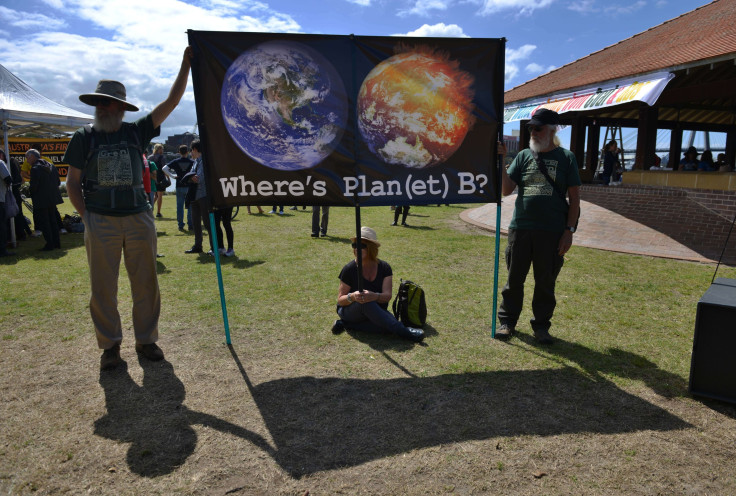Climate Change: New Report Slams Australian Government For Failing To Curb Emissions

Australia -- one of the world's largest per capita emitters of greenhouse gases -- has fallen behind other industrialized nations in its efforts to curb emissions and tackle anthropogenic climate change, according to a new assessment by Climate Action Tracker, released Thursday. The report comes at a time when the Tony Abbott-led administration is already facing criticism for failing to put forward ambitious emissions reduction targets.
“Australia’s Direct Action Plan does not put Australia anywhere close to a track that meets its INDC [Intended Nationally Determined Contribution] 2030 target,” the report, a collaborative effort between several international environmental research groups, stated. “With currently implemented policy measures, Australia’s emissions are set to increase substantially to more than 27 percent above 2005 levels by 2030, which is equivalent to an increase of around 61 percent above 1990 levels.”
This means that Australia’s pledge to cut emissions by at least 26 percent below 2005 levels by 2030 -- already slammed for being the weakest among developed nations -- is not viable. According to the report, this gap between what has been promised and what may be delivered can be attributed to “a history of inaction” on climate policy.
“Australia is one of five industrialized countries rated ‘inadequate’ by the Climate Action Tracker,” the researchers wrote, in the report. The other four nations are Canada, Japan, New Zealand and Russia. “The ‘inadequate’ rating indicates that Australia’s commitment is not in line with most interpretations of a ‘fair’ approach to reach a 2 degrees Celsius pathway: if most other countries followed the Australian approach, global warming would exceed 3 to 4 degrees Celsius,” they added.
The average of developed nations' emissions reduction target -- using 2005 as base year -- is about 36 percent by 2030, according to data analyzed by the Climate Institute, an Australian think tank.
The Abbott-led government has, in the past, faced criticism from environmentalists for failing to act against coal-burning industries, and for repealing the so-called “carbon tax” levied on the country’s biggest polluters. The Climate Action Tracker report found that before the carbon tax was revoked last July, the country’s climate policy was projected to bring the reduction in emissions at least halfway toward the 2030 target.
Australia is currently the 13th-largest greenhouse gas emitter in the world and one of the world’s biggest exporters and consumers of coal -- a major source of heat-trapping carbon.
The latest condemnation of the Australian administration for its lack of action on climate change comes just months ahead of a crucial conference in Paris. Earlier this year, the world’s biggest emitter, China, pledged to stop its pollution levels from rising by 2030 and the U.S. announced a goal of up to 28 percent reduction in emissions below 2005 levels by 2025, which, if met, could lead to a nearly 41 percent cut in emissions by 2030.
© Copyright IBTimes 2024. All rights reserved.












